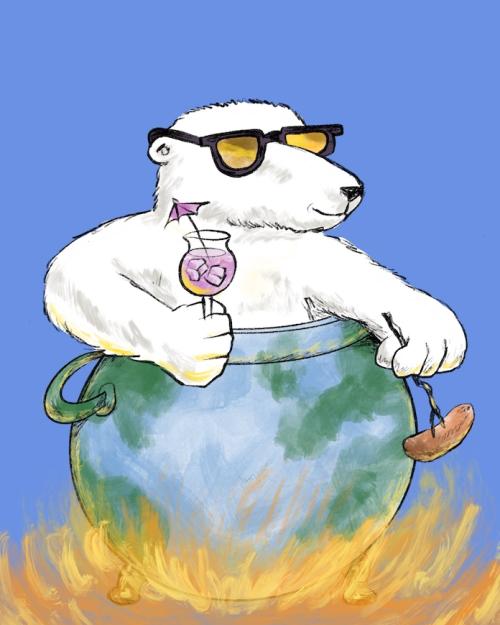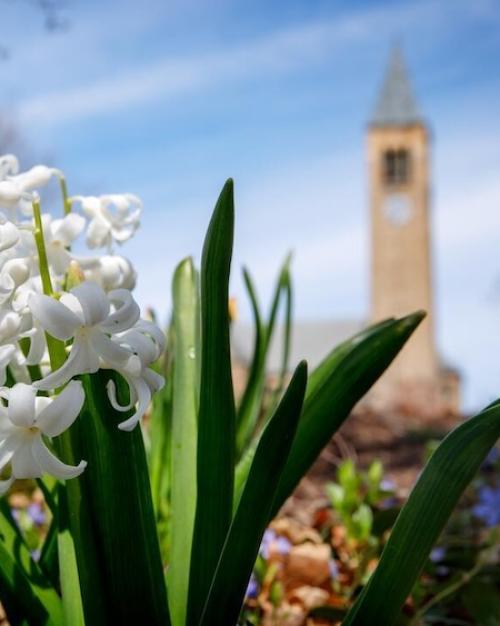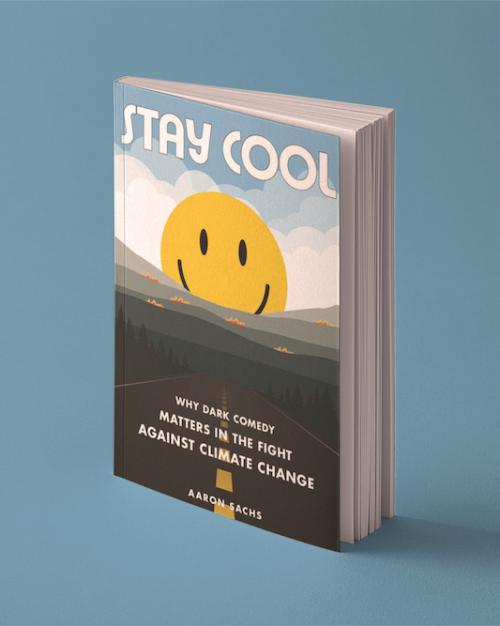Gallows humor has a long and useful history, helping people to cope with terrible circumstances. In his new book, “Stay Cool: Why Dark Comedy Matters in the Fight Against Climate Change,” Aaron Sachs, professor of history in the College of Arts and Sciences, demonstrates how laughter can give you strength to persevere even when things seem most hopeless.
Sachs uses the comedic traditions of two persecuted groups – Jews and African Americans – as examples, peppering each chapter with jokes to prove his point.
“The darkest comedy is often about hope or faith. But the goal isn’t any kind of triumphal transcendence – it’s more like endurance and persistence,” he writes.
It’s important to remember, said Sachs, that although we often feel overwhelmed by the destructiveness of climate change, it’s not the first time humans have faced catastrophe. As he writes, “Why did the Jews and Arabs wind up living in the desert? It seemed like the safest place after the Flood.”
The Cornell Chronicle spoke with Sachs about his book.
Question: What triggered the connection between humor and climate change for you?
Answer: For years I had been feeling pretty depressed and overwhelmed by climate change, and I knew it wasn’t just me. I had been working on the idea of social and cultural trauma, as opposed to individual trauma, and it occurred to me at some point that our whole culture was acting traumatized. People were losing the ability to hope in the face of climate change. But there are ways of working through trauma, and one of those ways is comedy. And added to that was the idea that environmentalists had never really used comedy as a tool, and, in fact, had a well-earned reputation as being rather dour.
Q: How is humor useful when disaster is looming?
A: Sometimes people need a morale boost. The depressive state is not really good for action, and that’s the basic reasoning for using comedy in dark times. It can provide a little jolt, can help you step back and gain some space or some purchase on your circumstances. You can breathe. You can take a moment and say, OK, yeah, we’re all in this together. We’ve all got to have a more positive mindset, if we're actually going to create the political will to do something about climate change.
A lot of comedy is based on surprise, which means that you often don't know what impact it will have. Comedy is very exploratory. It’s very improvisational. It creates a different kind of mental connection for people, and hopefully allows them to get out of that depressive mindset.
Q: How does history contribute to your understanding of humor in this context?
A: I think of history as in some ways very parallel to comedy, because both provide perspective on our current realities. We’re definitely living in dark times, but history reminds us that there have always been dark times, especially for some people. Where the two come together for me is, if you look at the history of oppressed people, who have had to deal with very challenging circumstances, sometimes for millennia, you see that one of their best coping strategies, one of the things they use the most just in order to persevere and develop a kind of cultural resilience, is a sense of humor.
There are many groups you could look at for this. The two that I focus on in the book are Jews and African Americans, who have some interesting parallels in their history. One of the subtexts or ulterior motives in this grouping is to say, look, there is a lot of common ground here. You see comedy cropping up for those groups in the most devastating circumstances. You see Jews in concentration camps in World War II putting on circuses and cabarets and variety shows. It’s just remarkable; how could anybody, under those awful circumstances, want to joke about anything? But it’s a survival strategy. And it’s the same with enslaved people, who had very little room to maneuver in their daily lives. But if there was one moment when they could turn to the person they’re working with, and make a quick joke about the local white folks who were causing them so much misery, that could put them both in the mood they needed to be in, just to persist and endure for the rest of the day.






